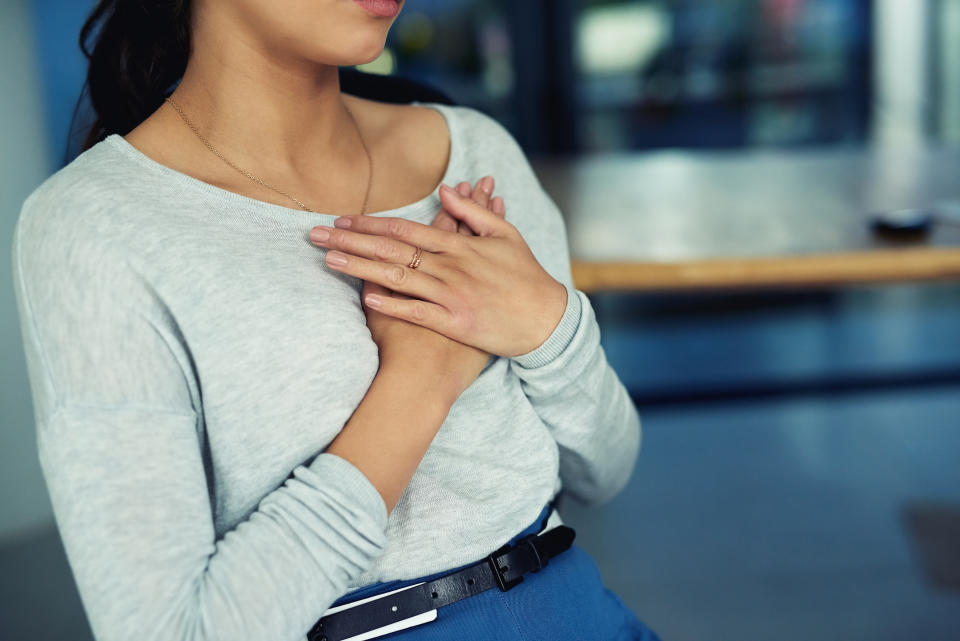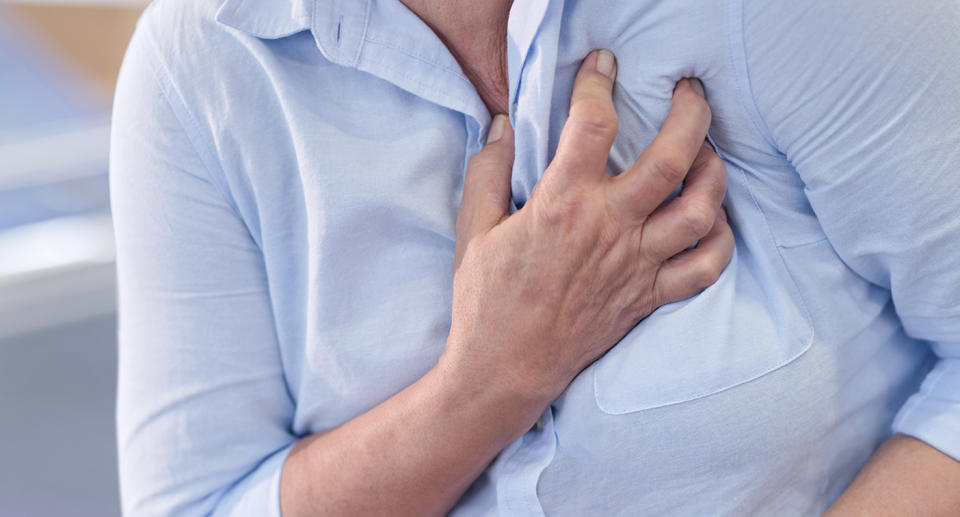Nurse's warning after 'muscle strain' turns out to be heart attack
A nurse who unknowingly suffered a heart attack and “almost died” because she went about her day instead of seeking medical attention has described her symptoms on social media, warning that women experience heart attacks differently from men.
The American woman, who goes by the name Gwheezie on Twitter, wrote extensively about her heart attack symptoms, which she initially shrugged off as “muscle strain”.
“Last Sunday I had a heart attack,” she wrote.
“I had a 95% block in my left anterior descending artery. I’m alive because I called 911. I never had chest pain. It wasn’t what you read in pamphlets. I had it off & on for weeks,” she wrote.

I want to warn women our heart attacks feel different. Last Sunday I had a heart attack. I had a 95% block in my left anterior descending artery. I’m alive because I called 911. I never had chest pain. It wasn’t what you read in pamphlets. I had it off & on for weeks.
— gwheezie (@geewheezie) December 9, 2018
The nurse said “the pain ran across my upper back, shoulder blades & equally down both arms. It felt like burning & aching.”
Gwheezie said she had recently helped her neighbour clean out her barn and “thought I strained some muscles”.
She took some pain relief and put a warm pack on her shoulders, but later called emergency services after she broke into “drenching sweat” and began vomiting.
“I almost died because I didn’t call it chest pain,” she shared.
The nurse even wrote off her symptoms the day before she had the actual attack and drove six hours to help her 90-year-old mother instead of seeing a doctor.
“I thought … I’d just tough it out because it wasn’t real bad,” she said.
The next day, things got much worse.
“I was lucky, I had no idea what hospital to go to, the female medics who picked me up took me to a hospital that does cardiac caths [catheterisation], I had 4 stents placed an hour after I got to the ER. That was Sunday. I was discharged Thurs & at my daughters house & back to tweeting,” she wrote.
I was lucky, I had no idea what hospital to go to, the female medics who picked me up took me to a hospital that does cardiac caths, i had 4 stents placed an hour after I got to the er. That was Sunday. I was discharged thurs & at my daughters house & back to tweeting.
— gwheezie (@geewheezie) December 9, 2018
Pain that ‘comes and goes’ – common heart attack symptoms
Pain that comes and goes seems like a surprising symptom for a heart attack, but it’s actually “common for coronary artery disease and should be taken seriously,” one expert said.
“Chest pain is still the No. 1 symptom for men and women, and any symptoms of chest pain should prompt a visit to the emergency room,” Dr Jennifer Haythe, co-director of the Women’s Centre for Cardiovascular Health at Columbia University Irving Medical Centre and cardiologist at New York-Presbyterian/Columbia, told Yahoo Lifestyle.
“Some women will experience some chest pain, but it may feel different than the typical ‘crushing pain’ men will describe,” women’s health expert Dr Jennifer Wider told Yahoo Lifestyle.
Other women won’t have chest pain at all, she adds.

Dr Sanjiv Patel, cardiologist at MemorialCare Heart and Vascular Institute at Orange Coast Medical Centre in Fountain Valley, California, told Yahoo Lifestyle that if the pain gets worse when you exert yourself, over time, it’s more likely to be a sign of a cardiac issue.
“If you do something and it gets worse, and it comes back the next day for a longer period of time, you’ll want to see a doctor,” Dr Patel said.
Why women and men experience heart attack symptoms differently
An alarming Australian study found women are less likely to report heart health issues, which could be why half as many female heart attack sufferers are receiving life-saving medications and treatment than males, leading to more heart fatalities.
“It could have to do with a difference in pain thresholds between men and women — women often blow off the symptoms because they are more subtle and less recognisable,” Dr Patel said.
If you’re having unusual symptoms, Dr Haythe said it was important to get checked out right away.
“Any new symptoms that don’t feel quite right should prompt an immediate call or visit to your doctor,” she said.
“Take your body seriously. It’s usually telling you something.”


